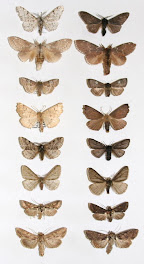The Genographic Project aims to collect DNA from hundreds of thousands of people around the world over the next five years, including indigenous peoples. Those who wish to contribute their own DNA can purchase DNA sampling kits for $100, with the money being used to fund further research.They are looking to collect samples (from men only) from 100,000 people from widely separated populations. In particular they are looking at geographically isolated populations. The genetic data will then be compared to ethnographic data (and presumably, linguistic data) to create a history of the human genome spanning the last 10,000-15,000 years.
By analysing the DNA, the researchers hope to trace past migrations and create a family tree for humanity. Data from the project will be made freely available to other researchers at the end of the project, and a “virtual museum” of human history will also be established.
Finally, the acknowledge the master, as well as some problems:
In the 1990s, Luca Cavalli-Sforza at Stanford University in California, US, attempted to set up an even more ambitious project called the Human Genome Diversity Project, to map genetic diversity around the world. But it foundered after opposition from groups representing indigenous peoples, who saw it as an attempt by western companies to profit from their genes.Frequently, the profit motive is used as a rational for environmental conservation (how many cures for various diseases will we lose if we destroy the rain forest - a frequently used rational for the involvement of pharmaceutical companies, for example). I, for one, amd eager to see how they negotiate this issue (needless to say since I have a background in anthropology I am also eager to see the results).
IBM says the Genographic Project is different as no medical studies will be done, and none of the data will be commercialised. An independent advisory board, including indigenous advocate Tammy Williams of Cape York, Australia, will oversee sampling and research.
Royyuru adds that the project will hopefully not be used to reaffirm concepts of race or reiterate the boundaries between different cultures. "There is no desire to look at race," he says. "In fact, as a scientist, I find the whole concept of race very difficult to access."








